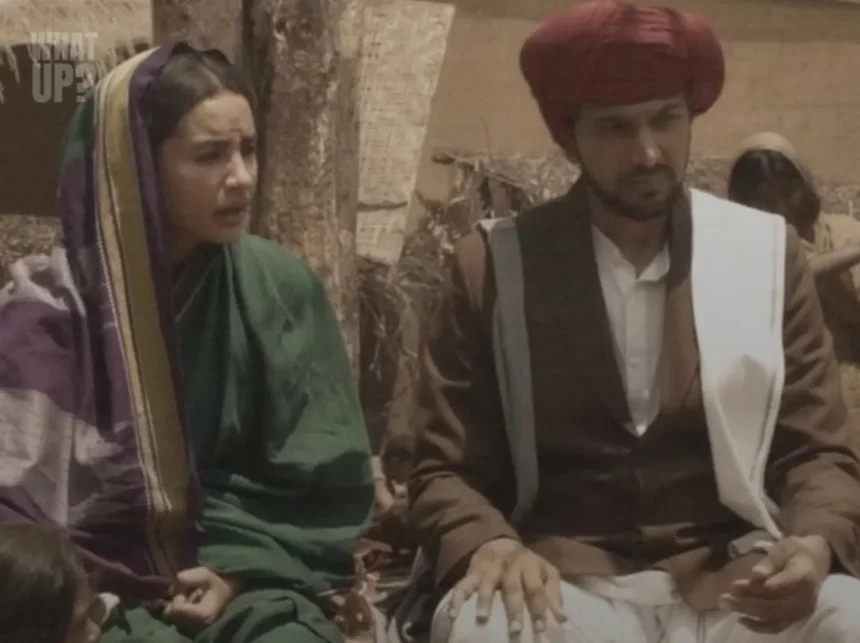Outrage as ‘Phule’ Biopic Faces Caste Censorship: What Really Happened?
In a country as diverse and complex as India, cinema often becomes a battlefield for ideas, identity, and history. The latest controversy swirling around the Bollywood film Phule is a powerful example of how sensitive — and contested — India’s caste narrative remains in modern times.
The film, based on the lives of revolutionary 19th-century social reformers Jyotirao and Savitribai Phule, has been caught in a storm of protests, edits, and accusations, putting the spotlight once again on the caste system, freedom of expression, and historical truth.
Here are 7 alarming facts you need to know about the delay and controversy surrounding Phule:
1. Who Were the Phules? Unsung Heroes of India’s Equality Movement
To truly grasp the significance of the Phule biopic and the controversy it has sparked, it’s essential to understand the powerful legacy of the people at its core. The following table highlights the key figures and their contributions to India’s fight against caste-based oppression and social inequality:
| Key Figure | Contribution |
|---|---|
| Jyotirao Phule | A pioneering anti-caste activist who fought caste-based discrimination and championed education for Dalits and marginalized communities. |
| Savitribai Phule | India’s first female teacher, poet, and social reformer who opened the country’s first girls’ school in 1848; regarded as the first feminist of modern India. |
| Dalits | Historically oppressed community once labeled as “untouchables“; central to the Phules’ mission for equality and education reforms. Learn more |
2. Film Caught in Political Crossfire
Directed by Ananth Mahadevan and starring Pratik Gandhi and Patralekhaa, Phule had initially received a U-certificate from the Central Board of Film Certification (CBFC) — meaning it was deemed suitable for all age groups.
But that changed when Brahmin groups, including the Akhil Bhartiya Brahmin Samaj and the Parshuram Aarthik Vikas Mahamandal, accused the film of defaming their community. Following their protests, the CBFC demanded multiple edits to references about caste and Dalit identity.
3. Historical Erasure or Sensitivity?
The CBFC reportedly asked the filmmakers to remove or tone down caste-specific terminology, especially references to the Dalit community and their historical oppression under the Hindu caste system.
Critics argue that this amounts to historical erasure, silencing voices that have long been ignored. How can a biopic on anti-caste reformers avoid talking about caste?
4. Freedom of Speech Under Pressure
This incident has reignited debates around freedom of expression in Indian cinema. Why is it that films highlighting caste injustice often face censorship, while others that glorify historical oppressors pass through unchallenged?
The controversy points to a broader pattern — that of cultural sanitization driven by dominant social groups who find critical storytelling uncomfortable or threatening.
5. Public Backlash is Growing
Unsurprisingly, the pushback against Phule has triggered fierce reactions online, with many calling out the CBFC for bowing to pressure from powerful caste lobbies.
Human rights groups, educators, and anti-caste activists have condemned the move as regressive and undemocratic, demanding that the film be released without cuts to preserve its original message.
6. Why This Matters More Than Ever in 2025
India may be a fast-growing global power, but caste discrimination remains a brutal daily reality for millions. Stories like Phule aren’t just historical dramas — they are reminders of struggles that are still very much ongoing.
In an age of social media and grassroots activism, erasing these narratives sends a chilling message to marginalized communities fighting for visibility and justice.
7. What Happens Next?
As of now, the film’s release has been delayed indefinitely, pending further negotiations with the CBFC. Supporters of the film are urging the filmmakers not to compromise on historical integrity and push back against the censorship.
The big question remains:
Will the truth of India’s anti-caste icons be allowed on screen?
Final Thoughts: History Deserves Its Heroes
Phule isn’t just a movie — it’s a cultural moment. It’s about honoring truth, fighting censorship, and standing up for those who challenged centuries of oppression. Jyotirao and Savitribai Phule lit the torch for equality when the world was in darkness. Today, their story deserves to shine, uncut and uncensored.
Most read: https://tnheadlines24.com/kesari-chapter-2-teaser/
Know Your History, Defend It Loudly
Stories like Phule matter. Bookmark this article and explore more voices from India’s social reform movements.
Disclaimer: TN HEADLINES24 is not responsible for the views or claims made in this article. The content is based on publicly available information and is intended for informational and awareness purposes only. All opinions expressed are those of the author.

